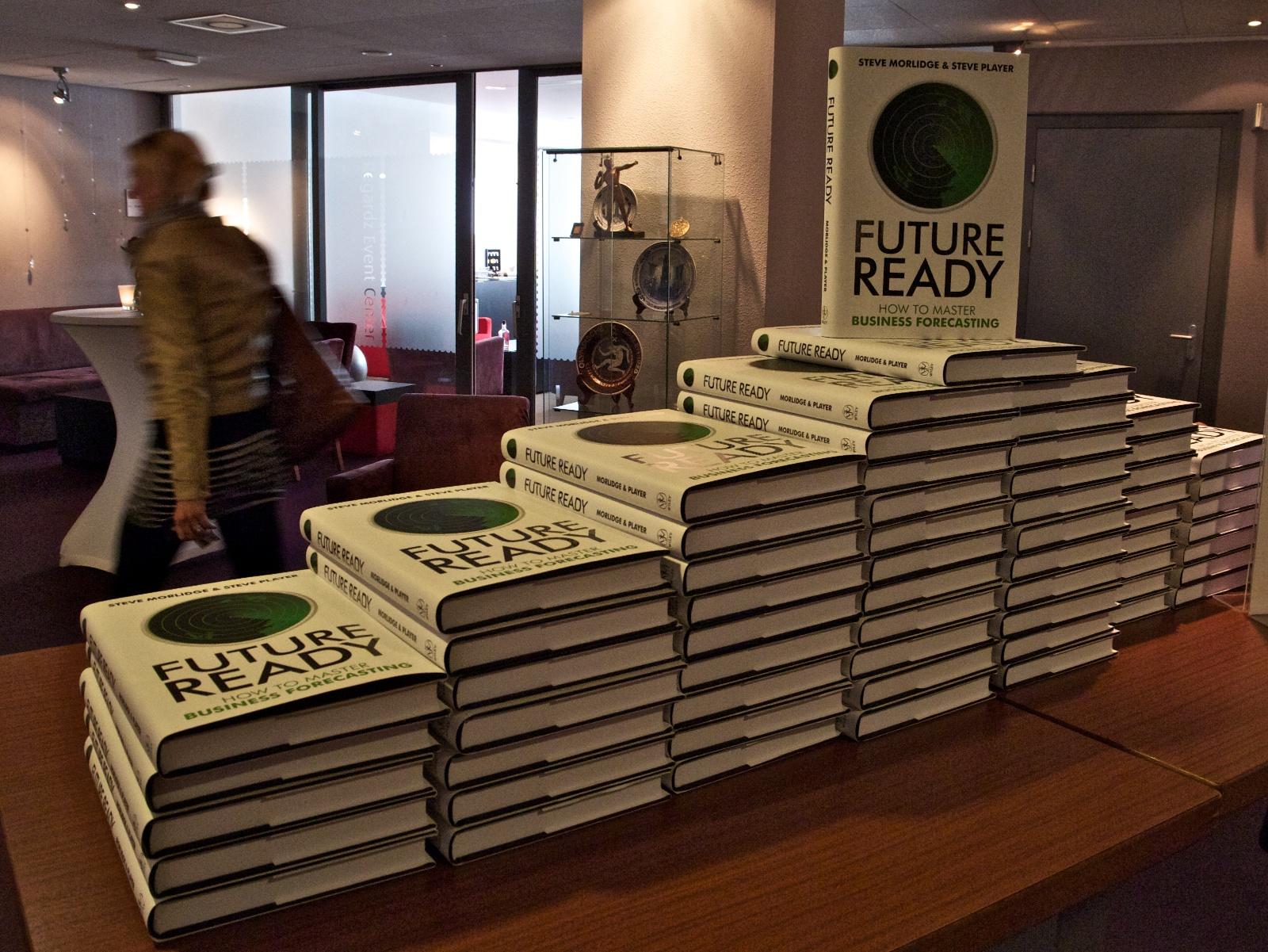Steve Morlidge, Future Ready
The IBM Finance Forum 2011 events have officially started in Europe. These events are designed for Finance professionals seeking to deliver stronger business insight to their organizations. Apart from being a great networking opportunity, we focus on sharing a lot of best-practice knowledge. Customers share their stories. And IBM also bring in great guest speakers like Steve Morlidge who share their tremendous knowledge in the finance area.
 Steve Morlidge will be joining many events across Europe this year. He is a true thought-leader in the area of financial performance management. In 2010, he released a ground-breaking book called ‘Future Ready – How to Master Business Forecasting’. Together with co-author Steve Player, Steve shares a lot of valuable knowledge that he gained in over 25 years as a senior finance executive working for international companies like Unilever. He is also an active member of the Beyond Budgeting Roundtable (BBRT).
Steve Morlidge will be joining many events across Europe this year. He is a true thought-leader in the area of financial performance management. In 2010, he released a ground-breaking book called ‘Future Ready – How to Master Business Forecasting’. Together with co-author Steve Player, Steve shares a lot of valuable knowledge that he gained in over 25 years as a senior finance executive working for international companies like Unilever. He is also an active member of the Beyond Budgeting Roundtable (BBRT).
Steve Morlidge and I were able to talk over the phone right before the first Finance Forum event in Zurich.
Christoph Papenfuss: Many companies are still developing annual budgets. Is this approach outdated or is there a place for the annual budget?
Steve Morlidge: I believe that conventional budgeting is dead, or at least very much on the way out. It takes too long, hinders responsiveness and fosters all kinds of damaging political behavior in enterprises. Companies still need to do things like setting targets, and this may still be called ‘budgeting’, but it is a long way from the traditional process many of us grew up with.
Christoph Papenfuss: What are some of the key issues associated with the traditional forecasting process?
Steve Morlidge: In my view most companies do not understand the difference between budgeting and forecasting. As a result, forecasting is done in too much detail, but not frequently enough. More importantly, the mindset is very often all wrong. Budgeting teaches us that gaps (between target and prognosis) are bad, whereas the primary purpose of forecasting is to detect deviations from plan so that corrective action can be taken; so unearthing such discrepancies should be positively encouraged, not punished.
Christoph Papenfuss: Many people talk about rolling forecasts. Are rolling forecasts a viable approach?
Steve Morlidge: They are, but too often people underestimate the task. In my book, rolling forecasts are forecasts with a consistent horizon: 12 months, 15 months or whatever. As a result, at any one time a significant chunk of the horizon may extend beyond the fiscal year end. Many of the processes upon which forecasting relies – like activity planning and so on – are anchored on the annual budgeting process so sourcing the information you need beyond the financial year end can sometimes be a challenge, unless these supporting processes are remodeled at the same time. Also, conventional annual target setting, particularly if it is tied to incentives, can distort a rolling forecast process to the point that it falls into disrepute. As a result, my advice to people is to fix the ‘in year’ forecast process first, before you tackle rolling horizons and the ‘out year’.
Christoph Papenfuss: We all know the saying ‘You get what you measure.’ Does this apply to the forecasting process?
Steve Morlidge: Absolutely. In fact, if you don’t measure the quality of your forecast process and, most importantly, act upon it, you have no kind of guarantee that the forecast can be relied upon. Proper measurement – closing the feedback loop – is the only thing that separates forecasting from guesswork, and in my book, 95% of corporate forecasts fall into the latter category.
Christoph Papenfuss: Many organizations utilize spreadsheets to manager their forecasts. What role does technology play to improve the forecasting and planning processes?
Steve Morlidge: At one level technology isn’t important at all – the main deficiency with business forecasting is the processes used and the thinking that lies behind it – not the toolset. Having said that, few companies can sustain a successful forecasting process without technology that enables them to streamline processes, provide appropriate modeling capabilities, support rapid reiteration, provide insightful measures, communicate results effectively and so on. Tools don’t make a master craftsman, but without them nothing would ever get built.
Christoph Papenfuss: You will be delivering a keynote presentation at many IBM Finance Forum events. Can you share a few things you will be talking about?
Steve Morlidge: My main message is that the practice of forecasting is broken, not because we don’t have the tools, but because we don’t know how to use the tools we have. I will be sharing what I have learned about mastering forecasting articulated in the form of six simple principles.
You can find out more about Steve on his website: http://www.satoripartners.co.uk. To see a full list of the Finance Forums 2011 events and to sign up, click here.

Comments
7 responses to “Future Ready? A discussion with Steve Morlidge”